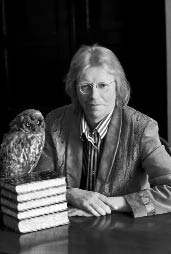Search results for "paavo haavikko"
At the sand pit
30 September 1985 | Archives online, Fiction, Prose
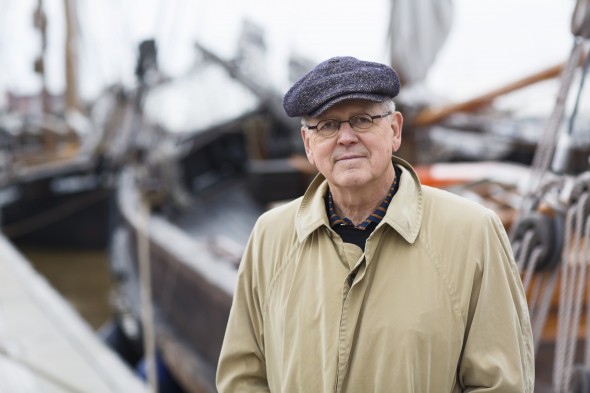
Antti Tuuri. Photo: Jouni Harala
‘After nearly 40 years of observing the Ostrobothnians, I am convinced that they have certain characteristics which explain the historical events that took place there and which also shed light on the region today. I do not know how these characteristics develop, but it appears that heredity, economic factors and even the landscape form the nature of people. Everywhere people who live in the plains are different from those who dwell in the mountains, and from those who fish the archipelagos,’ writes the author Antti Tuuri, himself an Ostrobothnian.
Antti Tuuri’s Pohjanmaa (‘Ostrobothnia’, 1982), which last January was awarded the Nordic Prize for Literature, has now been translated into each language of the Nordic countries. Tuuri’s novel describes the events of one summer day in Ostrobothnia, on the west coast of Finland, where a farming family, the Hakalas, has gathered for the reading of the will of a grandfather who emigrated to the United States in the 1920s.
The inheritance itself is insignificant, but it has brought together the four grandsons, with their wives and children. The story is narrated from the point of view of one of the brothers. The women of the family remain inside while the men take out an automatic pistol which has been kept hidden away since one of them smuggled it home from the Continuation War. The men go off to a sand pit to do some shooting and to drink some illegal home brew. There they meet their former schoolteacher, who joins in with their drinking and shooting. Some surprising events take place as the day’s action unfolds, and Tuuri’s narrator views them in an unsentimental way, describing them matter-of-factly and at times with ironic humour. The men recall the violent history of Ostrobothnia, the years of the Civil War and the right-wing Lapua movement of the 1930s.
The Nordic Prize jury commented that the novel ‘portrays the breaking up of the old society, and conflicts between generations as well as between men and women.’ Tuuri has constructed his novel on conflicts, and the result is a highly dramatic narrative.
![]()
An extract from Pohjanmaa (‘Ostrobothnia’)
A Finnish hound dog came out of the woods just beyond the sandpit, stopped at the edge of the pit and started to bark at us. The boys quickly began putting the weapon together. Veikko yelled that you were allowed to shoot a dog running loose in the woods out of hunting season. He kept asking me for cartridges; he’d shoot the dog right away, before it could tear to pieces the young game birds that couldn’t fly yet. I told him to shut up. Seppo finished putting the automatic pistol together and gave it to me. I ran to the car, put the gun down on the floor in front of the back seat and tossed a blanket over it.
When I got back, I saw the teacher coming out of the woods over by the pit. He snapped a leash on the dog and started towards us through the pine grove. The boys sat down around the campfire and began taking swigs of home brew from their cups. More…
We are the champions
25 March 2011 | Prose
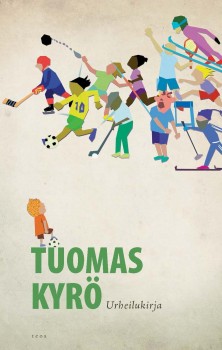 Heroes are still in demand, in sports at least. In his new book author Tuomas Kyrö examines the glorious past and the slightly less glorious present of Finnish sports – as well as the meaning of sports in the contemporary world where it is ‘indispensable for the preservation of nation states’. And he poses a knotty question: what is the difference, in the end, between sports and arts? Are they merely two forms of entertainment?
Heroes are still in demand, in sports at least. In his new book author Tuomas Kyrö examines the glorious past and the slightly less glorious present of Finnish sports – as well as the meaning of sports in the contemporary world where it is ‘indispensable for the preservation of nation states’. And he poses a knotty question: what is the difference, in the end, between sports and arts? Are they merely two forms of entertainment?
Extracts from Urheilukirja (‘The book about sports’, WSOY, 2011; see also Mielensäpahoittaja [‘Taking offence’])
The whole idea of Finland has been sold to us based on Hannes Kolehmainen ‘running Finland onto the world map’. [c. 1912–1922; four Olympic gold medals]. Our existence has been defined by how we are known abroad. Sport, [the Nobel Prize -winning author] F. E. Sillanpää, forestry, [Ms Universe] Armi Kuusela, [another runner] Lasse Viren, Nokia, [rock bands] HIM and Lordi, Martti Ahtisaari.
The purpose of sport at the grass-roots level has been to tend to the health of the nation and at a higher level to take our boys out into the world to beat all the other countries’ boys. We may not know how to talk, but our running endurance is all the better for it. However, the most important message was directed inwards, at our self image: we are the best even though we’re poor; we can endure more than the rest. Finnish success during the interwar period projected an image of a healthy, tenacious and competitive nation; political division meant division into good and bad, the right-minded and traitors to the fatherland. More…
New literary prize
6 May 2011 | In the news
A new literary prize was founded in 2010 by an association bearing the name of Jarkko Laine (1947–2006) – poet, writer, playwright, translator, long-time editor of the literary journal Parnasso and chair of the Finnish Writers’s Union.
The Jarkko Laine Literary Prize will be awarded to a ‘challenging new literary work’ published during the previous two years. The jury, of nine members, will announce the winner on 19 May.
The shortlist for the first prize is made of Kristina Carlson’s novel Herra Darwinin puutarhuri (‘Mr Darwin’s gardener’, Otava, 2009), Juha Kulmala’s collection of poems, Emme ole dodo (‘We are not dodo’, Savukeidas, 2009) and Erik Wahlström’s novel Flugtämjaren (‘Fly tamer’, Finnish translation Kärpäsenkesyttäjä, Schildts, 2010).
The prize money, €10,000, comes jointly from the publishing houses Otava, Otavamedia and WSOY, the Haavikko Foundation, the City of Turku and the University of Turku.
Speaking about the heart
30 June 1991 | Archives online, Articles
New Finnish poetry, translated and introduced by Herbert Lomas
The ‘modernist’ revolution in Finnish poetry is now 40 years old, and the art must be ripe for changes.
Of course, the modernism of post-war Finnish poetry was not – except in Haavikko and to some extent in Saarikoski – extremely modernist. The poets were more interested in their content than their experiments. They were perhaps closer to ancient Chinese poets and early Pound than to Eliot in their elided brief juxtapositions and meditations on nature, society and moment-to-moment transience. The poets picked up a few liberties that unshackled them from metrical and rhyming formalities uncongenial to Finnish stress, syntax and phonemics; and they took off to speak about the heart. That is the strength of this poetry, and its originality, since all originality consists in being oneself – which includes one’s national self, and ultimately other people’s selves. And every generation still has to make a new start, admittedly in new circumstances, with the experience of its forefathers from birth to death. More…
See the big picture?
9 November 2012 | Extracts, Non-fiction
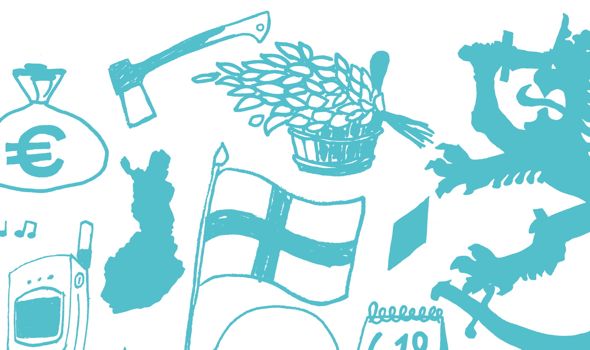
Details from the cover, graphic design: Työnalle / Taru Staudinger
In his new book Miksi Suomi on Suomi (‘Why Finland is Finland’, Teos, 2012) writer Tommi Uschanov asks whether there is really anything that makes Finland different from other countries. He discovers that the features that nations themselves think distinguish them from other nations are often the same ones that the other nations consider typical of themselves…. In Finland’s case, though, there does seem to be something that genuinely sets it apart: language. In these extracts Uschanov takes a look at the way Finns express themselves verbally – or don’t
Is there actually anything Finnish about Finland?
My own thoughts on this matter have been significantly influenced by the Norwegian social scientist Anders Johansen and his article ‘Soul for Sale’ (1994). In it, he examines the attempts associated with the Lillehammer Winter Olympics to create an ‘image of Norway’ fit for international consumption. Johansen concluded at the time, almost twenty years ago, that there really isn’t anything particularly Norwegian about contemporary Norwegian culture.
There are certainly many things that are characteristic of Norway, but the same things are as characteristic of prosperous contemporary western countries in general. ‘According to Johansen, ‘Norwegianness’ often connotes things that are marks not of Norwegianness but of modernity. ‘Typically Norwegian’ cultural elements originate outside Norway, from many different places. The kind of Norwegian culture which is not to be found anywhere else is confined to folk music, traditional foods and national costumes. And for ordinary Norwegians they are deadly boring, without any living link to everyday life. More…
Like it, or else
23 January 2014 | Non-fiction, Tales of a journalist

Illustration: Joonas Väänänen
Hitting the ‘like’ button is not only boring but also working its way from Facebook deeper into society, says Jyrki Lehtola. Surely there must be some other way of solving the world’s problems?
At the end of the autumn the theatre critic of the Helsingin Sanomat newspaper panned Sofi Oksanen’s stage adaptation of her novel Kun kyyhkyset katosivat (‘When the doves disappeared’, 2013).
That’s life. Artists struggle with their projects, sometimes for years. Then a critic takes a glance at the result and crushes it in a matter of hours.
Then there’s a huff about unfairness, the use of power and all the things artists blow off steam about when they feel that their creations have been treated unfairly. The debate is held between injured authors and sometimes the critic, but generally few others participate, and just as well. More…
Cool, not ice-cool
17 October 2013 | This 'n' that

Getting ready: book fair scenery, 2013. Photo: FILI
The Finnish book world is preparing for the big event of ‘F14’: Finland will appear as Guest of Honour at the Frankfurt Book Fair in October next year.
The slogan for this enterprise is Finnland. Cool.
The coordinating organ is FILI, the Finnish Literature Exchange, a part of the Finnish Literature Society. Co-operating with FILI are three ministries, literary organisations and publishers, the Finnish Embassy and Finnland-Institut in Berlin and the Goethe-Institut in Helsinki.
Last week a large proportion of the FILI staff – who now need to keep their cool for the next busy year – went to Frankfurt, and on 10 October (aptly, the memorial day of the national author Aleksis Kivi and also Finnish Literature Day) the press conference was opened by the Finnish Minister of Culture and Sport, Paavo Arhinmäki. On 13 October the 2013 Guest of Honour, Brazil, passed the baton to Finland. (More photographs here.)
The world’s largest book fair, Frankfurt, attracts some 300,000 visitors each year. Accessible to both professionals and the general public, the fair is also the biggest cultural event in Germany.
The Guest of Honour countries receive a vast amount of attention in the media, and the number of new translations from the respective languages into German, as well as other languages, will increase.
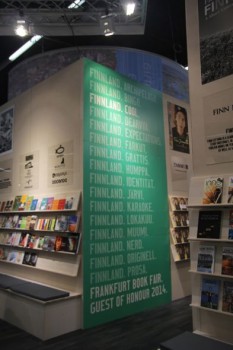
Finnland: arktik. Blondi. Cool. Demokratia. Einsam. Formula 1. Girji. Heimat. Ihminen. Joy…. Photo: FILI
The total Finnish budget for the years 2010–2015 is approximately four million euros, half of it money from the government. And the mission? Here are some warm words from the cool FILI agenda:
‘Why are Finns reading so much? Why are Finns so good at reading? Because we love it. Because reading plays such an important role in everyday life.
‘And because it is so important in Finland that everybody has access to reading – regardless of whether you are male or female, where you live, where you work, what your education or talent is. Fun, everyday life and for everyone – these are the main themes of the satellite programme for the Guest of Honour at the Frankfurt Book Fair 2014.’
The Knife
31 December 1989 | Archives online, Drama, Fiction
First performed in 1989 at the Savonlinna Opera Festival. Veitsi (‘The knife’, 1984) is set in Helsinki. The opera is composed by Paavo Heininen and the libretto is by the novelist, poet, playwright Veijo Meri. Veitsi is not a traditional opera, but ‘music-drama’. Introduction by Austin Flint
ACT I
(Pamppu takes Havinen and the Poet to the Publisher’s office)
PUBLISHER
Hello there, you great novelist!
This is really a surprise,
as though you’d blown the door off its hinges.
PAMPPU
These pages are terrific. Take a look at them. More…

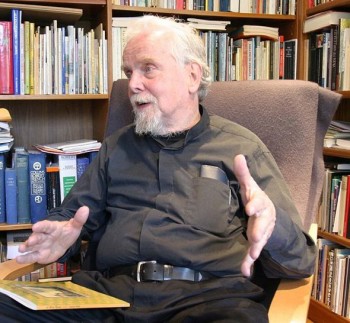
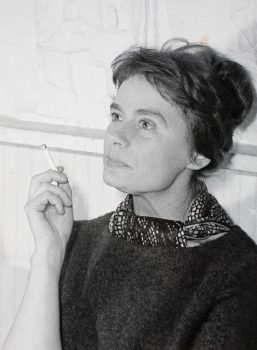
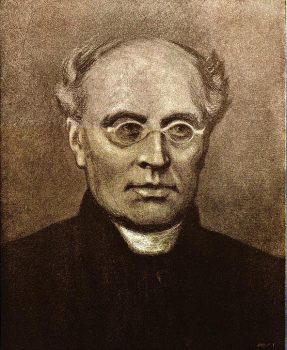
 Changes of self and perspective – and even of gender – fascinate the chameleon-like writer, dramatist and actress Pirkko Saisio. Set in Helsinki in the 1950s and 1960s, her autobiographical novel Pienin yhteinen jaettava (‘Lowest common multiple’, 1998) was on the shortlist for the Finlandia Prize. ‘We look into the mirror,’ she says in this introduction to her writing, ‘to wonder at the fact that we have the ability to divide in two, into she who looks and she who is looked at’.
Changes of self and perspective – and even of gender – fascinate the chameleon-like writer, dramatist and actress Pirkko Saisio. Set in Helsinki in the 1950s and 1960s, her autobiographical novel Pienin yhteinen jaettava (‘Lowest common multiple’, 1998) was on the shortlist for the Finlandia Prize. ‘We look into the mirror,’ she says in this introduction to her writing, ‘to wonder at the fact that we have the ability to divide in two, into she who looks and she who is looked at’.